Forked from node-cache great work by Josh Gwosdz, M. Peter, Daniel Luft and others.
A simple caching module that has set, get and delete methods and works a little bit like memcached.
Keys can have a timeout (ttl) after which they expire and are deleted from the cache.
All keys are stored in a single object so the practical limit is at around 1m keys.
We took 5.1.2 rewriten it to TypeScript and added high performance options in separate class
Although not breaking per definition, our typescript rewrite changed internal function.
Cache is not suporting useClones option set to true with functions as values. Use NodeCacheTs to achive similar or better effect.
npm install node-cache-ts --saveconst { NodeCache } = require( "node-cache-ts" );
const myCache = new NodeCache();-
stdTTL: (default:0) the standard ttl as number in seconds for every generated cache element.0= unlimited -
checkperiod: (default:600) The period in seconds, as a number, used for the automatic delete check interval.0= no periodic check. -
useClones: (default:true) en/disable cloning of variables. Iftrueyou'll get a copy of the cached variable. Iffalseyou'll save and get just the reference.
Note:-
trueis recommended if you want simplicity, because it'll behave like a server-based cache (it caches copies of plain data). -
falseis recommended if you want to achieve performance or save mutable objects or other complex types with mutability involved and wanted, because it'll only store references of your data. - Here's a simple code example showing the different behavior
-
-
deleteOnExpire: (default:true) whether variables will be deleted automatically when they expire. Iftruethe variable will be deleted. Iffalsethe variable will remain. You are encouraged to handle the variable upon the eventexpiredby yourself. -
maxKeys: (default:-1) specifies a maximum amount of keys that can be stored in the cache. If a new item is set and the cache is full, an error is thrown and the key will not be saved in the cache. -1 disables the key limit.
import { NodeCache } from 'node-cache-ts';
const stringCache = new NodeCache<string>( { stdTTL: 100, checkperiod: 120 } );import NodeCacheTs from 'node-cache-ts';
const myServiceCache = new NodeCacheTs<{key: string}, string>( { stdTTL: 100 }, async (args: { name: string }): Promise<string> => {
return await myServiceCall(args.name);
} );
const myResult = myServiceCache.call('key', { 'John' });or if you don't like types:
import { NodeCacheTs } from 'node-cache-ts';
const myServiceCache = new NodeCacheTs( { stdTTL: 100 }, async ( args ) => {
return await myServiceCall(args);
} );
const myResult = myServiceCache.call('key', { 'John' });NodeCacheTs is generally quicker and more resilent to errors see result of our tests.
| NodeCache | NodeCacheTs |
|---|---|
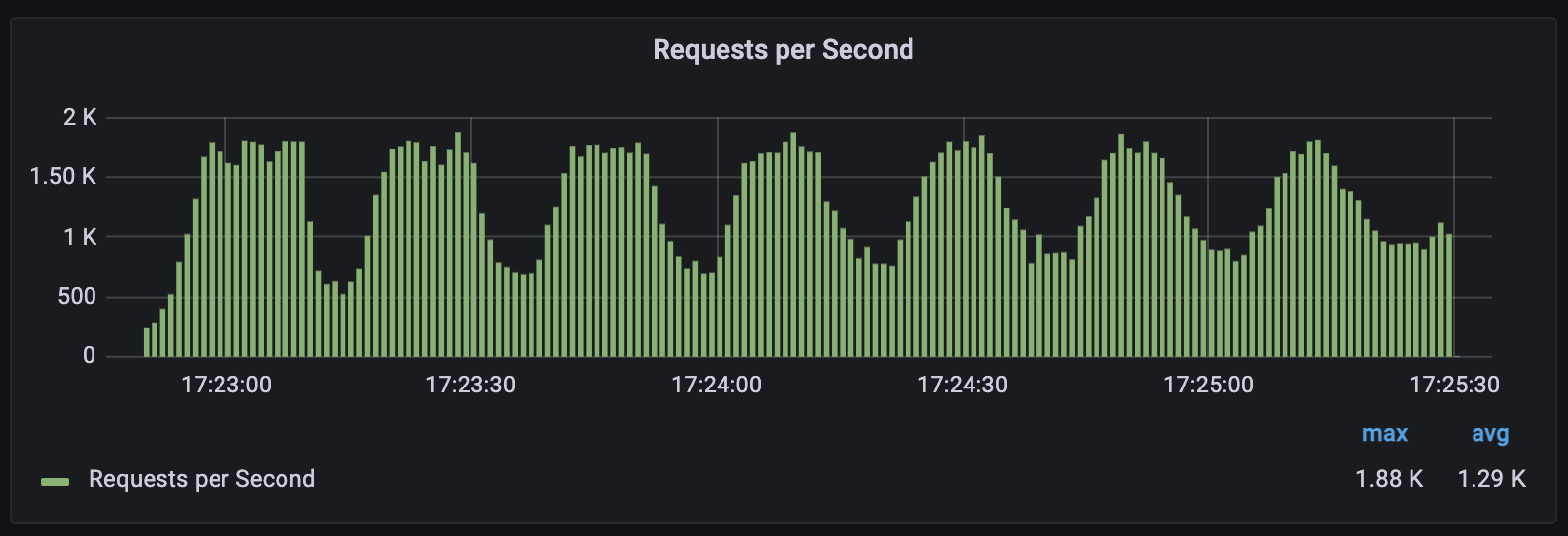 |
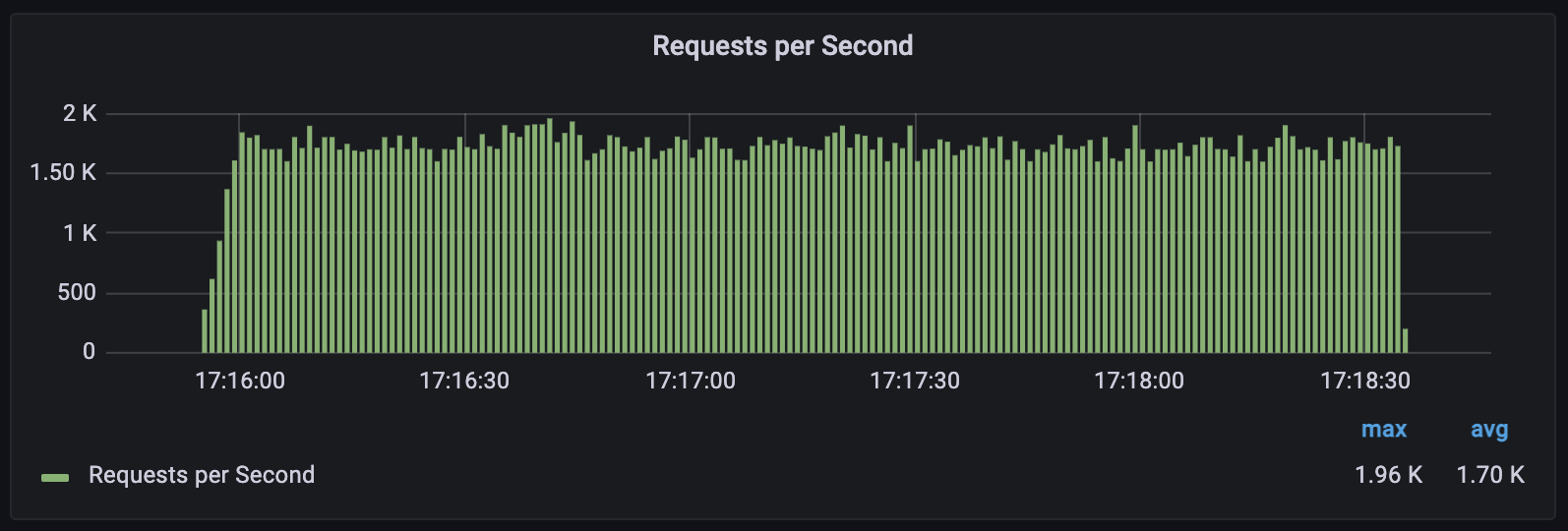 |
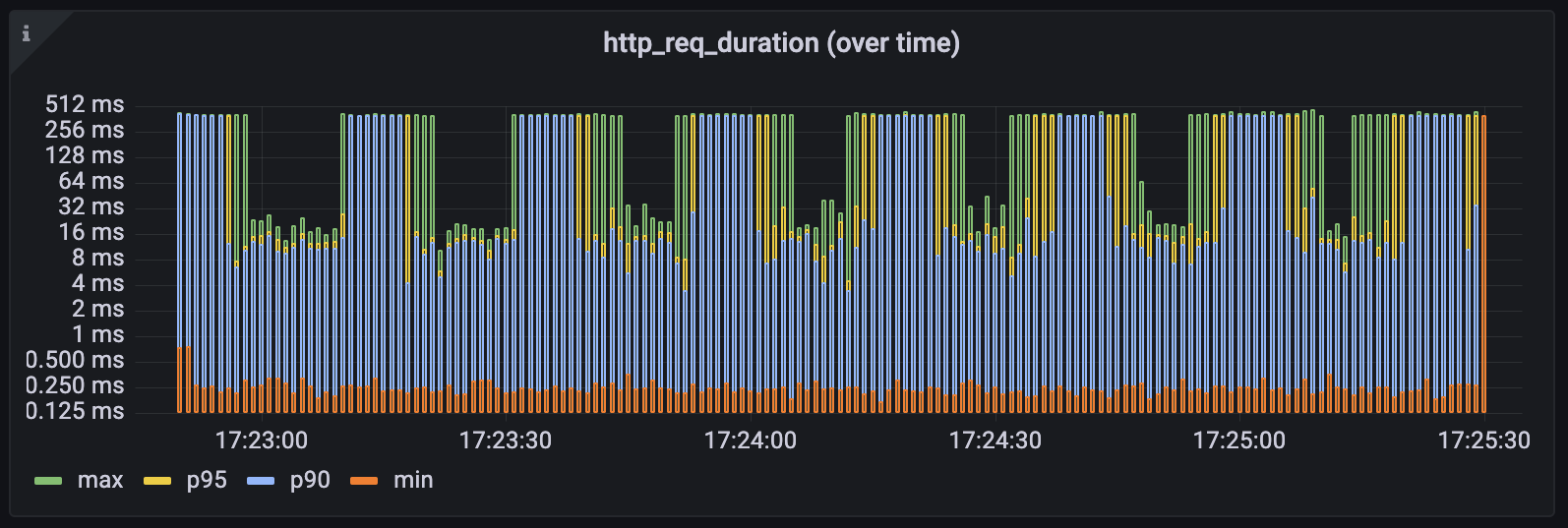 |
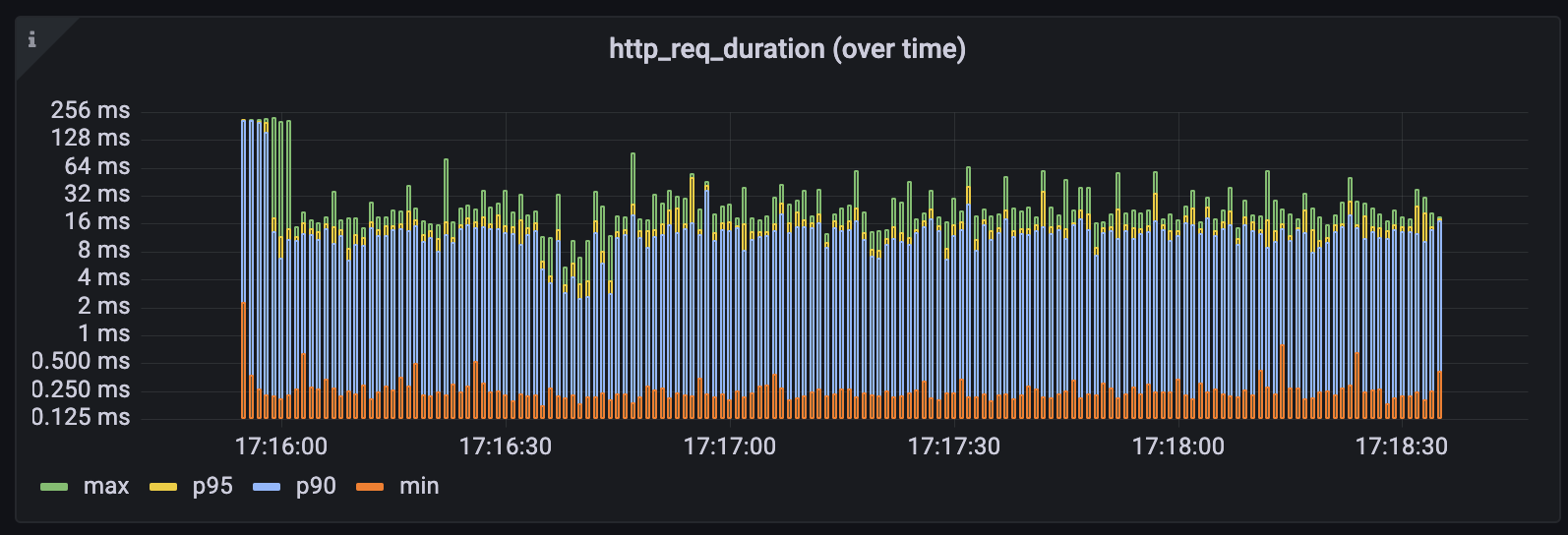 |
Beware on the lateny graph scale is not linear
Here the test for the flaky service throwing error code 500 with probability of 1%:
| NodeCache | NodeCacheTs |
|---|---|
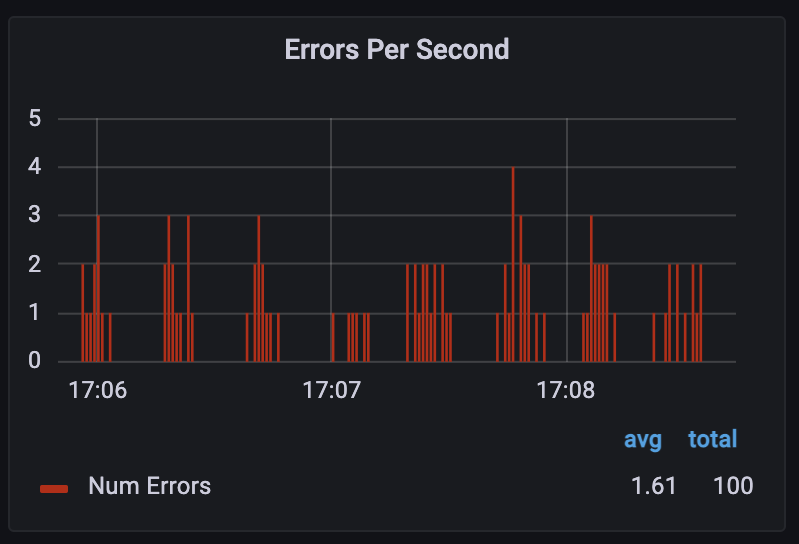 |
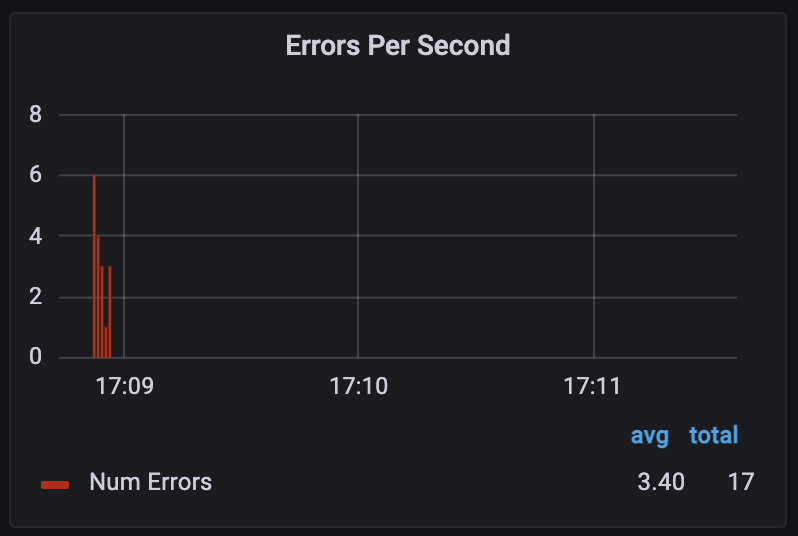 |
Errors disapear in second phase of the tests as subsequent calls are repeated in case of error and the chance of error reachng to customer is very low.
And data is refreshed in the same phase. However number of calls to the server is significantly lower. Due to the fact that SnowCashe will call the server only for cached arguments and NodeCache will call as many times as many threads ask for same inforation and no data is in the cache.
myCache.call( key, { arg1 } )
Cache will call a method past during construction and cache both it's result and arguments for that method under the key. Both arguments and result well be selialized unless option.argsUseClones is set to false.
Method will return the value if it is cached from the cache if it is not cached from the method past during construction. Method will be called again after ttr passes with first arguments for the given key. When after ttr the call method is used arguments will be remembered again and used in next call.
If the method called in the backround returns an error the method will be called again if stdTTL is not reached. On error refresh_error event will be emited remember to catch it and log it or act upon it.
const myResult = myServiceCache.call('key', { 'John' });myCache.set( key, val, [ ttl ] )
Sets a key value pair. It is possible to define a ttl (in seconds).
Returns true on success.
Key-validation: The keys can be given as either string or number, but are casted to a string internally anyway.
All other types will throw an error.
obj = { my: "Special", variable: 42 };
success = myCache.set( "myKey", obj, 10000 );
// trueNote: If the key expires based on it's
ttlit will be deleted entirely from the internal data object.
myCache.mset(Array<{key, val, ttl?}>)
Sets multiple key val pairs. It is possible to define a ttl (seconds).
Returns true on success.
const obj = { my: "Special", variable: 42 };
const obj2 = { my: "other special", variable: 1337 };
const success = myCache.mset([
{key: "myKey", val: obj, ttl: 10000},
{key: "myKey2", val: obj2},
])myCache.get( key )
Gets a saved value from the cache.
Returns a undefined if not found or expired.
If the value was found it returns the value.
value = myCache.get( "myKey" );
if ( value == undefined ){
// handle miss!
}
// { my: "Special", variable: 42 }Since 2.0.0:
The return format changed to a simple value and a ENOTFOUND error if not found *( as result instance of Error )
Since 2.1.0:
The return format changed to a simple value, but a due to discussion in #11 a miss shouldn't return an error.
So after 2.1.0 a miss returns undefined.
myCache.take( key )
get the cached value and remove the key from the cache.
Equivalent to calling get(key) + del(key).
Useful for implementing single use mechanism such as OTP, where once a value is read it will become obsolete.
myCache.set( "myKey", "myValue" )
myCache.has( "myKey" ) // returns true because the key is cached right now
value = myCache.take( "myKey" ) // value === "myValue"; this also deletes the key
myCache.has( "myKey" ) // returns false because the key has been deletedmyCache.mget( [ key1, key2, ..., keyn ] )
Gets multiple saved values from the cache.
Returns an empty object {} if not found or expired.
If the value was found it returns an object with the key value pair.
value = myCache.mget( [ "myKeyA", "myKeyB" ] );
/*
{
"myKeyA": { my: "Special", variable: 123 },
"myKeyB": { the: "Glory", answer: 42 }
}
*/Since 2.0.0:
The method for mget changed from .get( [ "a", "b" ] ) to .mget( [ "a", "b" ] )
myCache.del( key )
Delete a key. Returns the number of deleted entries. A delete will never fail.
value = myCache.del( "A" );
// 1myCache.del( [ key1, key2, ..., keyn ] )
Delete multiple keys. Returns the number of deleted entries. A delete will never fail.
value = myCache.del( "A" );
// 1
value = myCache.del( [ "B", "C" ] );
// 2
value = myCache.del( [ "A", "B", "C", "D" ] );
// 1 - because A, B and C not existsmyCache.ttl( key, ttl )
Redefine the ttl of a key. Returns true if the key has been found and changed. Otherwise returns false. If the ttl-argument isn't passed the default-TTL will be used.
The key will be deleted when passing in a ttl < 0.
myCache = new NodeCache( { stdTTL: 100 } )
changed = myCache.ttl( "existentKey", 100 )
// true
changed2 = myCache.ttl( "missingKey", 100 )
// false
changed3 = myCache.ttl( "existentKey" )
// truemyCache.getTtl( key )
Receive the ttl of a key. You will get:
-
undefinedif the key does not exist -
0if this key has no ttl - a timestamp in ms representing the time at which the key will expire
myCache = new NodeCache( { stdTTL: 100 } )
// Date.now() = 1456000500000
myCache.set( "ttlKey", "MyExpireData" )
myCache.set( "noTtlKey", "NonExpireData", 0 )
ts = myCache.getTtl( "ttlKey" )
// ts wil be approximately 1456000600000
ts = myCache.getTtl( "ttlKey" )
// ts wil be approximately 1456000600000
ts = myCache.getTtl( "noTtlKey" )
// ts = 0
ts = myCache.getTtl( "unknownKey" )
// ts = undefinedmyCache.keys()
Returns an array of all existing keys.
mykeys = myCache.keys();
console.log( mykeys );
// [ "all", "my", "keys", "foo", "bar" ]myCache.has( key )
Returns boolean indicating if the key is cached.
exists = myCache.has( 'myKey' );
console.log( exists );myCache.getStats()
Returns the statistics.
myCache.getStats();
/*
{
keys: 0, // global key count
hits: 0, // global hit count
misses: 0, // global miss count
ksize: 0, // global key size count in approximately bytes
vsize: 0 // global value size count in approximately bytes
}
*/myCache.flushAll()
Flush all data.
myCache.flushAll();
myCache.getStats();
/*
{
keys: 0, // global key count
hits: 0, // global hit count
misses: 0, // global miss count
ksize: 0, // global key size count in approximately bytes
vsize: 0 // global value size count in approximately bytes
}
*/myCache.flushStats()
Flush the stats.
myCache.flushStats();
myCache.getStats();
/*
{
keys: 0, // global key count
hits: 0, // global hit count
misses: 0, // global miss count
ksize: 0, // global key size count in approximately bytes
vsize: 0 // global value size count in approximately bytes
}
*/myCache.close()
This will clear the interval timeout which is set on check period option.
myCache.close();On error refresh_error event will be emited remember to catch it and log it or act upon it.
myCache.on( "set", function( error, key, args) ){
// ... do something ...
console.log(error); //or something similar
});Fired when a key has been added or changed.
You will get the key and the value as callback argument.
myCache.on( "set", function( key, value ){
// ... do something ...
});Fired when a key has been removed manually or due to expiry.
You will get the key and the deleted value as callback arguments.
myCache.on( "del", function( key, value ){
// ... do something ...
});Fired when a key expires.
You will get the key and value as callback argument.
myCache.on( "expired", function( key, value ){
// ... do something ...
});Fired when the cache has been flushed.
myCache.on( "flush", function(){
// ... do something ...
});Fired when the cache stats has been flushed.
myCache.on( "flush_stats", function(){
// ... do something ...
});In separate terminals run:
npm run compile-watch this will watch for your changes
cd test; docker-compose up this will start grafana and influxdb
npm run mock-server-watch this will watch for your changes
cd ./test/
docker-compose run k6 run /scripts/load.k6.jsThe catalogue is from docker.
Now click this link http://localhost:3000/dashboards select prefered dashboard and enjoy the show refresh is an icon in right upper conrner  . You can change scerios to ones commented out in the
. You can change scerios to ones commented out in the ./test/load.k6.js.
node-cache-ts supports all node versions >= 8 (check!!!)
| Version | Date | Description |
|---|---|---|
| 1.0.0 | 2024-03-01 | Fork from node_cache TS rewrite and NodeCacheTs added. |
| Name | Description |
|---|---|
| node-cache | Project that we are a humble clone of |
| rsmq | A really simple message queue based on redis |
| redis-heartbeat | Pulse a heartbeat to redis. This can be used to detach or attach servers to nginx or similar problems. |
| systemhealth | Node module to run simple custom checks for your machine or it's connections. It will use redis-heartbeat to send the current state to redis. |
| rsmq-cli | a terminal client for rsmq |
| rest-rsmq | REST interface for. |
| redis-sessions | An advanced session store for NodeJS and Redis |
| connect-redis-sessions | A connect or express middleware to simply use the redis sessions. With redis sessions you can handle multiple sessions per user_id. |
| redis-notifications | A redis based notification engine. It implements the rsmq-worker to safely create notifications and recurring reports. |
| nsq-logger | Nsq service to read messages from all topics listed within a list of nsqlookupd services. |
| nsq-topics | Nsq helper to poll a nsqlookupd service for all it's topics and mirror it locally. |
| nsq-nodes | Nsq helper to poll a nsqlookupd service for all it's nodes and mirror it locally. |
| nsq-watch | Watch one or many topics for unprocessed messages. |
| hyperrequest | A wrapper around hyperquest to handle the results |
| task-queue-worker | A powerful tool for background processing of tasks that are run by making standard http requests |
| soyer | Soyer is small lib for server side use of Google Closure Templates with node.js. |
| grunt-soy-compile | Compile Goggle Closure Templates ( SOY ) templates including the handling of XLIFF language files. |
| backlunr | A solution to bring Backbone Collections together with the browser fulltext search engine Lunr.js |
| domel | A simple dom helper if you want to get rid of jQuery |
| obj-schema | Simple module to validate an object by a predefined schema |
Copyright © 2024 Jan Topinski and the node-cache maintainers, https://github.com/node-cache/node-cache
Permission is hereby granted, free of charge, to any person obtaining a copy of this software and associated documentation files (the 'Software'), to deal in the Software without restriction, including without limitation the rights to use, copy, modify, merge, publish, distribute, sublicense, and/or sell copies of the Software, and to permit persons to whom the Software is furnished to do so, subject to the following conditions:
The above copyright notice and this permission notice shall be included in all copies or substantial portions of the Software.
THE SOFTWARE IS PROVIDED 'AS IS', WITHOUT WARRANTY OF ANY KIND, EXPRESS OR IMPLIED, INCLUDING BUT NOT LIMITED TO THE WARRANTIES OF MERCHANTABILITY, FITNESS FOR A PARTICULAR PURPOSE AND NONINFRINGEMENT. IN NO EVENT SHALL THE AUTHORS OR COPYRIGHT HOLDERS BE LIABLE FOR ANY CLAIM, DAMAGES OR OTHER LIABILITY, WHETHER IN AN ACTION OF CONTRACT, TORT OR OTHERWISE, ARISING FROM, OUT OF OR IN CONNECTION WITH THE SOFTWARE OR THE USE OR OTHER DEALINGS IN THE SOFTWARE.
